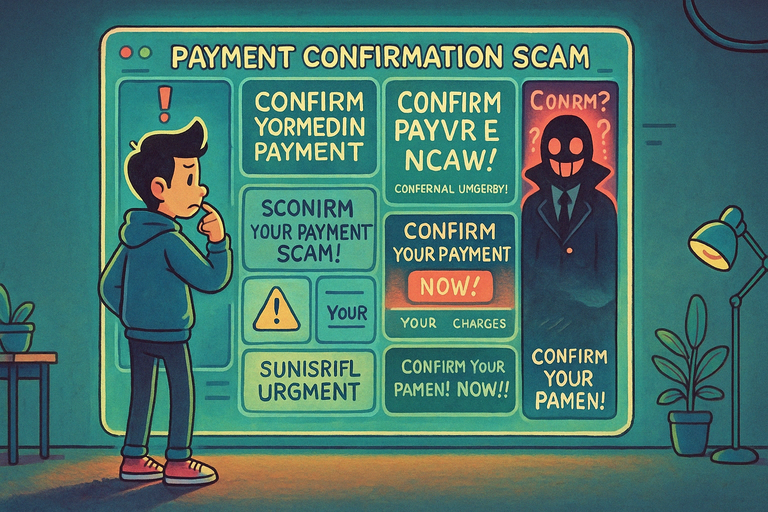Payment Confirmation Scam
Avoiding Fraudulent Payment Confirmation Requests
Payment confirmation scams involve fraudsters sending fake requests for payment confirmation. These scams often trick victims into sharing sensitive information or making unauthorised payments.

Things to Be Careful About:
- Unsolicited Payment Requests: Be cautious of unexpected messages asking for payment confirmations.
- Links to Fake Websites: Fraudsters often include links designed to steal your login or payment details.
- Urgent or Threatening Language: Messages creating a sense of urgency are common tactics to rush your response.
- Generic Sender Information: Fraudulent messages may lack specific details, such as your order or invoice number.
- Requests for Additional Payments: Scammers may claim additional fees are required to complete the transaction.
Actions You Can Take:
- Verify Directly with the Source: Contact the business or individual using official contact details to confirm the payment request.
- Avoid Clicking on Links: Do not interact with links or attachments in suspicious payment confirmation messages.
- Use Secure Payment Platforms: Rely on trusted payment methods and portals to process transactions.
- Monitor Account Activity: Regularly check your bank or payment accounts for unauthorised transactions.
- Report Suspicious Messages: Notify your payment provider or authorities if you suspect fraudulent activity.
Payment confirmation scams exploit trust in digital payment systems. By staying alert and verifying requests, you can protect your finances and personal information from fraudsters.
Still worried about online scams?
If something doesn’t feel right, you don’t have to deal with it alone. Get instant guidance from ScamAvert AI, or try the free Open Beta app for ongoing protection.
No credit card required
